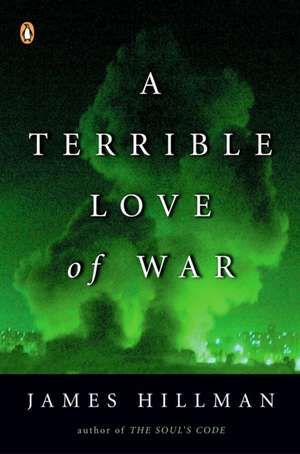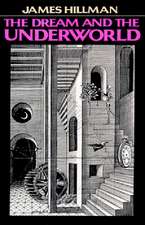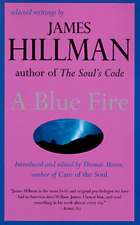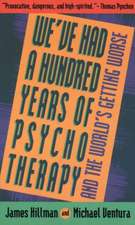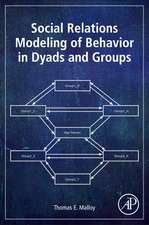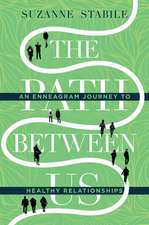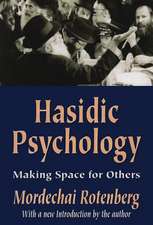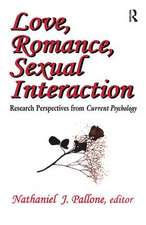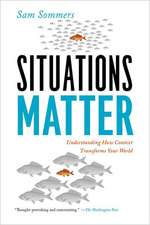A Terrible Love of War
Autor James Hillmanen Limba Engleză Paperback – 31 ian 2005 – vârsta de la 18 ani
War is a timeless force in the human imagination—and, indeed, in daily life. Engaged in the activity of destruction, its soldiers and its victims discover a paradoxical yet profound sense of existing, of being human. In A Terrible Love of War, James Hillman, one of today’s most respected psychologists, undertakes a groundbreaking examination of the essence of war, its psychological origins and inhuman behaviors. Utilizing reports from many fronts and times, letters from combatants, analyses by military authorities, classic myths, and writings from great thinkers, including Twain, Tolstoy, Kant, Arendt, Foucault, and Levinas, Hillman’s broad sweep and detailed research bring a fundamentally new understanding to humanity’s simultaneous attraction and aversion to war. This is a compelling, necessary book in a violent world.
Preț: 131.75 lei
Nou
Puncte Express: 198
Preț estimativ în valută:
25.21€ • 26.96$ • 21.02£
25.21€ • 26.96$ • 21.02£
Carte disponibilă
Livrare economică 28 martie-11 aprilie
Preluare comenzi: 021 569.72.76
Specificații
ISBN-13: 9780143034926
ISBN-10: 0143034928
Pagini: 272
Dimensiuni: 140 x 202 x 15 mm
Greutate: 0.23 kg
Editura: Penguin Books
ISBN-10: 0143034928
Pagini: 272
Dimensiuni: 140 x 202 x 15 mm
Greutate: 0.23 kg
Editura: Penguin Books
Cuprins
Chapter One: War Is Normal
Chapter Two: War Is Inhuman
Chapter Three: War Is Sublime
Chapter Four: Religion Is War
Acknowledgments
Notes
Bibliography
Index
About the Author
Chapter Two: War Is Inhuman
Chapter Three: War Is Sublime
Chapter Four: Religion Is War
Acknowledgments
Notes
Bibliography
Index
About the Author
Recenzii
"Important reading for our time, as we try to make sense of our terrors." —San Francisco Chronicle
"[Hillman’s] portrayal of war as an implacable force, a primary element of the human condition, is unsettling." —Publishers Weekly
"[Hillman’s] portrayal of war as an implacable force, a primary element of the human condition, is unsettling." —Publishers Weekly
"Important reading for our time, as we try to make sense of our terrors." --San Francisco Chronicle"[Hillman's] portrayal of war as an implacable force, a primary element of the human condition, is unsettling." --Publishers Weekly
Extras
One sentence in one scene from one film, Patton, sums up what this book tries to understand. The general walks the field after a battle. Churned earth, burned tanks, dead men. He takes up a dying officer, kisses him, surveys the havoc and says: “I love it. God help me, I do love it so. I love it more than my life.”
We can never prevent war or speak sensibly of peace and disarmament unless we enter this love of war. Unless we move our imaginations into the martial state of soul, we cannot comprehend its pull. This means “going to war,” and this book aims to induct our minds into military service. We are not going to war in the name of peace, as deceitful rhetoric so often declares, but rather for war’s own sake: to understand the madness of its love.
Our civilian disdain and pacifist horror—all the legitimate and deep-felt aversion to everything to do with the military and the warrior—must be set aside. This because the first principle of psychological method holds that any phenomenon to be understood must be sympathetically imagined. No syndrome can be truly dislodged from its cursed condition unless we first move imagination into its heart.
War is first of all a psychological task, perhaps the first of all psychological tasks because it directly threatens your life and mine, and the existence of all living beings. The bell tolls for thee, and all. Nothing can escape thermonuclear rage, and if the burning and its aftermath are unimaginable, their cause, war, is not.
War is also a psychological task because philosophy and theology, the fields supposed to do the heavy thinking for our species, have neglected war’s overriding importance. “War is the father of all,” said Heraclitus at the beginnings of Western thought. If it is a primordial component of Being, then war fathers the very structure of existence and our thinking about it: our ideas of the universe, of God, of ethics; war determines the thought patterns of Aristotle’s logic of opposites, Kant’s antimonies, Darwin’s natural selection, Marx’s struggle of classes and even Freud’s repression of the id by the ego and super-ego. We think in warlike terms, feel ourselves at war with ourselves, and unknowingly believe predation, territorial defense, conquest, and the interminable battle of opposing forces are the ground rules of existence…;.
War is becoming more normalized every day. Trade war, gender war, net war, information war. But war against cancer, war against crime, against drugs, against poverty and other ills of society has nothing to do with the actualities of war. These civil wars, wars within civilian society, mobilize resources in the name of a heroic victory over an insidious enemy. These wars are noble good guys against bad guys and no one gets hurt. This way of normalizing war has whitewashed the word and brainwashed us so that we forget its terrible images. Then whenever the possibility of actual war approaches with its reality of violent death-dealing combat, the idea of war has been normalized into nothing more than putting more cops on the street, more rats in the lab, and passing tax rebates for urban renewal.
I base the statement “war is normal” on two factors we have already seen: its constancy throughout history and its ubiquity over the globe. These two factors require another more basic one: acceptability. Wars could not happen unless there were those willing to help them happen. Conscripts, slaves, indentured soldiers, unwilling draftees to the contrary, there are always masses ready to answer the call to arms, to join up, to get in the fight. There are always leaders rushing to take the plunge. Every nation has its hawks. Moreover, resisters, dissenters, pacifists, objectors, and deserters are rarely able to bring war to a halt. The saying “Someday they’ll give a war and no one will come” remains a fond wish. War drives everything else off the front page.
We can never prevent war or speak sensibly of peace and disarmament unless we enter this love of war. Unless we move our imaginations into the martial state of soul, we cannot comprehend its pull. This means “going to war,” and this book aims to induct our minds into military service. We are not going to war in the name of peace, as deceitful rhetoric so often declares, but rather for war’s own sake: to understand the madness of its love.
Our civilian disdain and pacifist horror—all the legitimate and deep-felt aversion to everything to do with the military and the warrior—must be set aside. This because the first principle of psychological method holds that any phenomenon to be understood must be sympathetically imagined. No syndrome can be truly dislodged from its cursed condition unless we first move imagination into its heart.
War is first of all a psychological task, perhaps the first of all psychological tasks because it directly threatens your life and mine, and the existence of all living beings. The bell tolls for thee, and all. Nothing can escape thermonuclear rage, and if the burning and its aftermath are unimaginable, their cause, war, is not.
War is also a psychological task because philosophy and theology, the fields supposed to do the heavy thinking for our species, have neglected war’s overriding importance. “War is the father of all,” said Heraclitus at the beginnings of Western thought. If it is a primordial component of Being, then war fathers the very structure of existence and our thinking about it: our ideas of the universe, of God, of ethics; war determines the thought patterns of Aristotle’s logic of opposites, Kant’s antimonies, Darwin’s natural selection, Marx’s struggle of classes and even Freud’s repression of the id by the ego and super-ego. We think in warlike terms, feel ourselves at war with ourselves, and unknowingly believe predation, territorial defense, conquest, and the interminable battle of opposing forces are the ground rules of existence…;.
War is becoming more normalized every day. Trade war, gender war, net war, information war. But war against cancer, war against crime, against drugs, against poverty and other ills of society has nothing to do with the actualities of war. These civil wars, wars within civilian society, mobilize resources in the name of a heroic victory over an insidious enemy. These wars are noble good guys against bad guys and no one gets hurt. This way of normalizing war has whitewashed the word and brainwashed us so that we forget its terrible images. Then whenever the possibility of actual war approaches with its reality of violent death-dealing combat, the idea of war has been normalized into nothing more than putting more cops on the street, more rats in the lab, and passing tax rebates for urban renewal.
I base the statement “war is normal” on two factors we have already seen: its constancy throughout history and its ubiquity over the globe. These two factors require another more basic one: acceptability. Wars could not happen unless there were those willing to help them happen. Conscripts, slaves, indentured soldiers, unwilling draftees to the contrary, there are always masses ready to answer the call to arms, to join up, to get in the fight. There are always leaders rushing to take the plunge. Every nation has its hawks. Moreover, resisters, dissenters, pacifists, objectors, and deserters are rarely able to bring war to a halt. The saying “Someday they’ll give a war and no one will come” remains a fond wish. War drives everything else off the front page.
Descriere
World-renowned psychologist Hillman, bestselling author of "The Soul's Code," offers a profound examination of the roots of humanity's unavoidable obsession with war.
